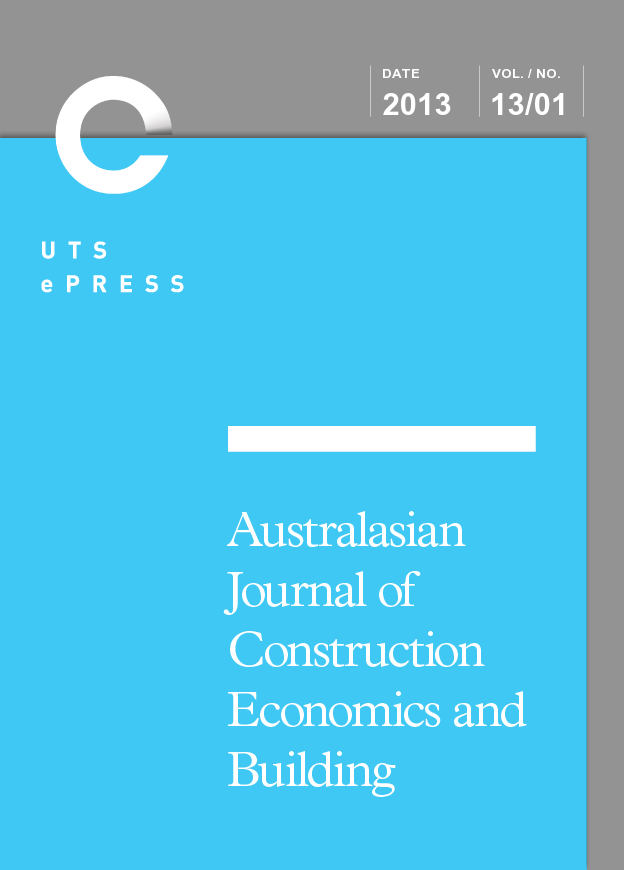Performance measurement in the UK construction industry and its role in supporting the application of lean construction concepts
Main Article Content
Abstract
Performance measurement has received substantial attention from researchers and the construction industry over the past two decades. This study sought to assess UK practitioners’ awareness of the importance of the use of appropriate performance measures and its role in supporting the application of Lean Construction (LC) concepts. To enable the study to achieve its objectives, a review of a range of measurements developed to evaluate project performance including those devoted to support LC efforts was conducted. Consequently a questionnaire survey was developed and sent to 198 professionals in the UK construction industry as well as a small sample of academics with an interest in LC. Results indicated that although practitioners recognise the importance of the selection of non-financial performance measures, it has not been properly and widely implemented. The study identified the most common techniques used by UK construction organisations for performance measurement, and ranked a number of non-financial key performance indicators as significant. Some professed to have embraced the Last Planner System methodology as a means for performance measurement and organisational learning, while further questioning suggested otherwise. It was also suggested that substance thinking amongst professionals could be a significant hidden barrier that militates against the successful implementation of LC.
Article Details
Section
Authors who publish with this journal agree to the following terms:
a) Authors retain copyright and grant the journal right of first publication with the work simultaneously licensed under a Creative Commons Attribution License that allows others to share and adapt the work with an acknowledgement of the work's authorship and initial publication in this journal.
b) Authors are able to enter into separate, additional contractual arrangements for the non-exclusive distribution of the journal's published version of the work (e.g., post it to an institutional repository or publish it in a book), with an acknowledgement of its initial publication in this journal.
c) Authors are permitted and encouraged to post their work online (e.g., in institutional repositories or on their website) prior to and during the submission process, as it can lead to productive exchanges, as well as earlier and greater citation of published work (See The Open Access Citation Advantage Service). Where authors include such a work in an institutional repository or on their website (ie. a copy of a work which has been published in a UTS ePRESS journal, or a pre-print or post-print version of that work), we request that they include a statement that acknowledges the UTS ePRESS publication including the name of the journal, the volume number and a web-link to the journal item.
d) Authors should be aware that the Creative Commons Attribution (CC-BY) License permits readers to share (copy and redistribute the work in any medium or format) and adapt (remix, transform, and build upon the work) for any purpose, even commercially, provided they also give appropriate credit to the work, provide a link to the license, and indicate if changes were made. They may do these things in any reasonable manner, but not in any way that suggests you or your publisher endorses their use.
